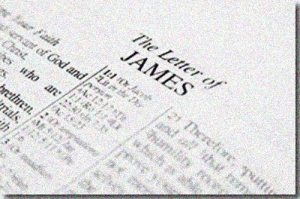Part 6: Occasion of writing

Audience: the twelve tribes in Dispersion
At first glance, it seems that James is writing to Jews. After all, to translate literally, James addresses his epistle “to the twelve tribes in the Dispersion.” The twelve tribes traditionally represent Israel, and the dispersion signifies the Jews scattered throughout the pagan world. But there are reasons to think James is writing for Jewish Christians, not Jews in general. As “dispersion” can serve as a metaphor to indicate that believers are never fully at home in this world. So there is reason to believe that James, like other New Testament writers, envisions a wide audience[1].
The addressee, “the twelve tribes in dispersion,” seems to indicate metaphorically to Christians that are scattered throughout the world. Since the phrase “twelve tribes” was continued to be used as a metaphor for the Israel as the people of God, long after twelve distinctly identifiable tribes were more of a memory and ideal than a visible reality.
Continue reading →










